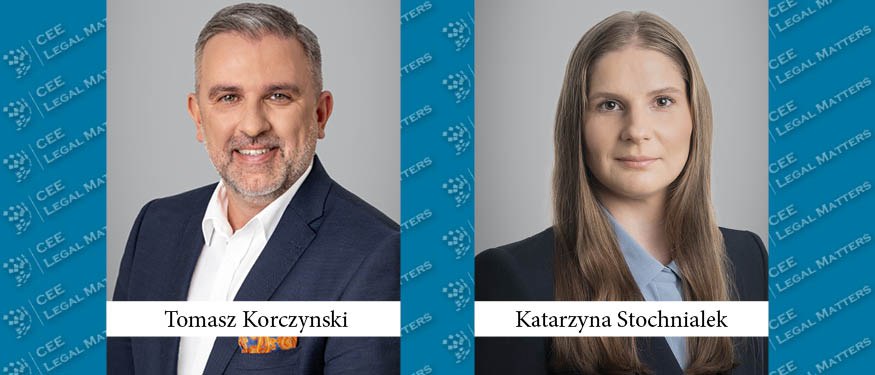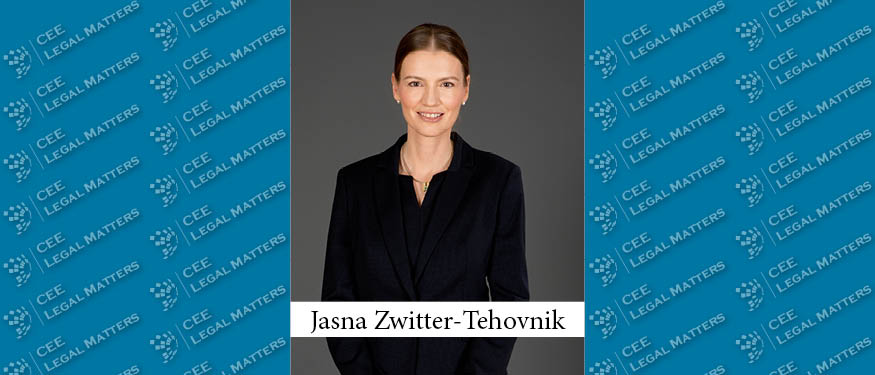A successful closure of a complex M&A transaction involving the sale of Serbian companies through an innovative escrow solution, overcoming trust issues, financing challenges, and regulatory requirements.
Hungary's New Cybersecurity Strategy
The Government of Hungary has recently adopted Government Decision 1089/2025 (III. 31.) on the country's Cybersecurity Strategy, effective between 2025–2030.
Competition in Focus: Serbia’s Private Healthcare Sector Under Regulatory Spotlight
The Serbian Competition Commission ("Commission") has published a Report on the sector inquiry of competition conditions in the private healthcare services market in the Republic of Serbia for the period from 2019 up to 2023 ("Inquiry").
North Macedonia Becomes a Member of SEPA: Changes in Financial Payments and Transactions
On 6 March 2025, the European Payments Council officially accepted North Macedonia’s application and included North Macedonia in the Single Euro Payments Area (“SEPA”). With this, North Macedonia became the 39th member of SEPA.
Hungarian Government Introducing New Restrictions to Curb Pollution
The Hungarian Government is committed to reducing environmentally harmful activities and protecting the environment. However, fines imposed by environmental authorities for violations related to environmental permits, noise pollution and air quality have remained unchanged for 15–20 years. The Government expects all investments to meet the highest environmental standards, and under the “polluter pays” principle, non-compliant companies will face penalties.
Rules on Casual and Seasonal Employment Have Changed
Over the past years, the number of casual and seasonal employees in Hungary has reached nearly 320 thousand, however, according to the Government, many employees are only registered as such because of the tax benefits associated with the forms of simplified employment.
Rethinking Retention in Croatia: Strategic Employee Ownership in Croatian Enterprises
In recent years, Croatian enterprises have increasingly embraced innovative ownership structures to retain and incentivize top talent. Initially spearheaded by the IT sector, this trend has expanded across industries, from established family businesses to emerging ventures. The rationale is straightforward: aligning employee interests with long-term corporate success through equity participation.
No Proper Information, No Interest from the Banks
If a bank fails to comply with its information obligations in consumer credit agreements, it may be deprived of its right to charge interest and other fees. This applies even if the severity of the violation and its consequences for the consumer varies from case to case.
Fiduciary Transfers: Relic of the Past or Financial Necessity?
The word “fiduciary” originates from the Latin language and in translation means trust or pledge and dates back to Roman law and denotes a contract that is created when one party, the fiduciary (fiducians), hands over to another party a fiduciary (fiduciarius) something for ownership, and the fiduciary undertakes to return the same thing to the ownership of the fiduciary after the expiration of a certain term or the fulfillment of a certain condition. The fiduciary transfer of ownership rights i.e. fiduciary (“Fiduciary”) was introduced as a legal institute into the Montenegrin legal system through the Law on Fiduciary Transfer of Rights (“Official Gazette RCG No 23/96”) and after that, it continued to live under the Law on Property Relations (“Official Gazette CG No 19/09”).
Experts in the Spotlight under the New Arbitration Rules
At the beginning of this year, the Court of International Commercial Arbitration of the Chamber of Commerce and Industry of Romania (CICA) has adopted a new set of arbitration rules (the New CICA Rules). The New CICA Rules govern arbitral proceedings starting with 1 January 2025, replacing the rules which were in force from 2018 (the Old CICA Rules).
Poland: How to Win Public Infrastructure Contracts
Implementing a public investment is an essential part of the business strategy of many private-sector companies. Why is this? Although such projects are typically low-margin, they do guarantee a stable income.
A 2025 Outlook at the Greek Corporate Landscape
As we near the conclusion of the first quarter of 2025, it is clear that the Greek corporate landscape and M&A market are undergoing significant changes influenced by a variety of economic, regulatory, and social factors. While the M&A sector experienced steady activity over the past two years, its overall momentum was relatively muted, primarily due to geopolitical tensions, social dynamics, and inflationary pressures. However, a much-anticipated increase in traction appears to be on the horizon, making a comprehensive understanding of the current trends and challenges within the market crucial to effectively navigate and track this evolving environment.
Greece’s Constitutional Clash: Court Ruling Alters Real Estate Landscape
On January 24, 2025, the Council of State, Greece’s highest administrative court, issued four landmark judgments. These are Decisions No 146, 147, 148, and 149/2025 of the Council of State in Plenary Session, published on January 24, 2025, and made available to the public on February 5, 2025. The decisions are expected to significantly impact the country’s real estate market.
Bonding Against the Storm: Navigating Natural Disaster Risks in Greek Banking
The increasing frequency and severity of natural disasters pose significant risks to financial markets worldwide. In Greece, a country prone to wildfires, earthquakes, and floods, these challenges are particularly pressing. The performance of Greek banks and financial institutions is often negatively impacted by natural disasters. As a result, they are increasingly focusing on integrating natural disaster risk management into their bond loan structures to enhance financial stability and ensure market resilience.
Austria’s Evolving Crypto and Banking Landscape: A 2025 Perspective
Austria’s financial sector is experiencing significant regulatory shifts. These changes are reshaping the landscape for both domestic and foreign entities operating in the Austrian market.
Austrian Drones – What Will the Neighbors Say?
Drones, or unmanned aerial vehicles are becoming increasingly popular worldwide, including in Austria, with the drone global market to exceed USD 55 billion by 2030, reflecting their global importance. Drones can serve both as recreational gadgets and as professional tools for photographers, farmers, emergency responders, and other professionals. As with any new technology the benefits must be weighed against the risks.
English Language Courts in Austria
European Commercial Courts are positioning themselves as alternatives to other national courts as they remain closely tied to domestic court systems.
Protecting Companies from Unintentional Engagement in Unfair Trade Practices
Unfair trade practices refer to deceptive, unethical, or manipulative actions carried out by businesses, that violate consumer protection laws and harm the consumers. These practices contradict professional conduct and significantly distort the economic interests and decision-making of the average consumer, often targeting vulnerable groups.






































